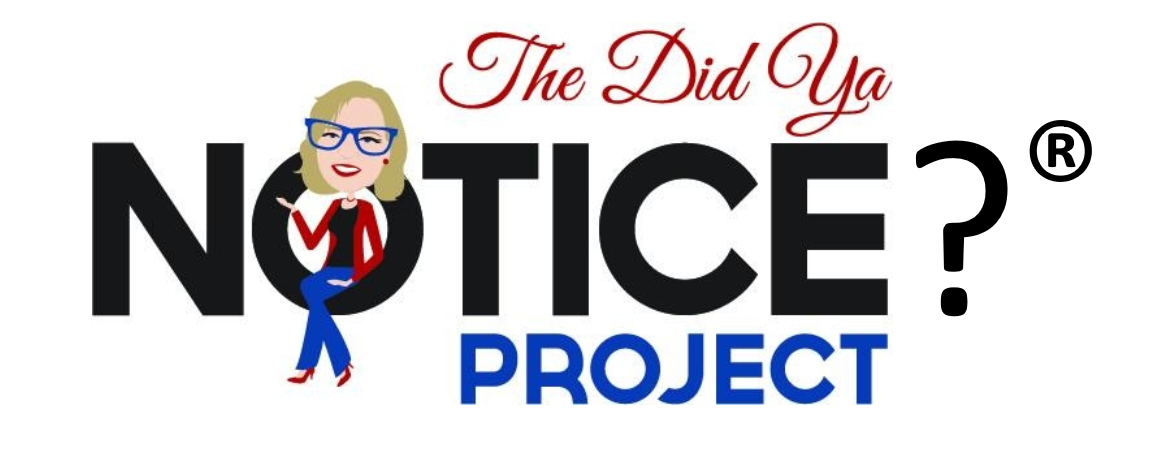Noticing is mindfulness. Mindfulness leads to happiness and greater productivity. Harvard Business Review and Forbes have written about this. Research on happiness and productivity was even presented at the Royal Economic Society. So see, there is good scientific evidence for Noticing, smiling, and appreciating life.
Dr. Ellen Langer, social psychologist and Harvard professor, is the mother of mindfulness - not mindfulness as meditation but mindfulness as Noticing. She has done amazing research for 40 years and has published more than 200 research articles and eleven books. The first thing to do is check out www.EllenLanger.com.
Then check out these:
-
Corporations' Newest Productivity Hack: Meditation an article in The Atlantic in March 2015, discusses the benefits to both companies and employees of having mindfulness training in the workplace. It is talking about meditation techniques, but think of the benefits of just plain being mindful on a daily basis - of Noticing simple solutions and work patterns that are effective, instead of just mindlessly slogging through your work and your to-do list.
-
Bringing Mindfulness to the Workplace, a UNC 2014 white paper, includes survey research results of mindfulness programs in the workplace. The sources page lists websites of recent research.
- July-August 2014 Harvard Business Review, “Becoming a First-Class Noticer” by Max H. Bazerman. Bazerman quotes Warren Bennis, a pioneer of leadership studies, that the best leaders are “first-class noticers”. Bazerman explains that this means “they pay close attention to what is happening around them. They see things that others miss….” Although this article is about noticing ethical lapses in an organization, it certainly points to the individual, corporate, and societal benefits of Noticing.
- The March 2014 issue of Harvard Business Review is titled “Work vs Life”. Harumph. That “vs” is not necessary. But there is a wonderful interview with Dr. Ellen Langer about the critical importance of mindfulness. I have responded to two of the articles in this HBR edition in my Huffington Post blog. http://www.huffingtonpost.com/margery-leveen-sher/persistent-resilient-or-s_b_4839834.html is about work-life balance. http://www.huffingtonpost.com/margery-leveen-sher/i-feel-like-fred-astaire_b_4843393.html is about Dr. Langer’s interview on mindfulness.
- The January-February 2012 Harvard Business Review has a series of articles on “How Employee Well-Being Drives Profits”. Researchers have found that happy employees are more productive. They have also found that the small, everyday things in life count the most in making us happy. Harvard psychology professor, Daniel Gilbert, notes: “Somebody who has a dozen mildly nice things happen each day is likely to be happier than somebody who has a single truly amazing thing happen…the small stuff matters.” Well...that sounds like…noticing amazing little things!
- Research presented at the Royal Economic Society’s 2012 annual conference by Dr. Jan-Emmanuel De Neve and Professor Andrew Oswald demonstrated that happier people earn more. They report: “We find that human happiness has large and positive causal effects on productivity.”
- Research psychologist, Sonja Lyubomirsky, notes that people “high in mindfulness – those who are mindfully attentive to the here and now and keenly aware of their surroundings are models of flourishing and positive mental health.” In other words, they Notice!
- The Huffington Post has a section on mindfulness research which translates research findings for the layman, as well as a mindful leadership section.
- There are a couple of interesting articles in Forbes linking mindfulness to business success:
- http://www.forbes.com/sites/toddessig/2013/11/27/mindfulness-is-a-useful-business-skill-new-research-suggests/
- http://www.forbes.com/sites/csr/2011/02/01/mindfulness-as-a-tool-for-organizational-and-social-change/ This article in Forbes is really interesting. Remember my Noticing about cauliflower and all the repeating patterns in nature? These repeating patterns are called fractals. This article talks about the work of Pravir Malik who ties fractals to mindfulness in the workplace. He found that (my paraphrase here) individuals becoming more mindful had an impact on the functioning of the larger organization. In other words, patterns on an individual level impact the larger organization.
- Here is a website with lots of research on mindfulness: http://www.mindfulnet.org/page4.htm
Here are some of the companies that have instituted mindfulness training programs because they recognize the return on their investment of having employees who can focus: Google, Aetna, General Mills, Intel, Apple, Deutsche Bank, Procter & Gamble, Astra Zeneca.



